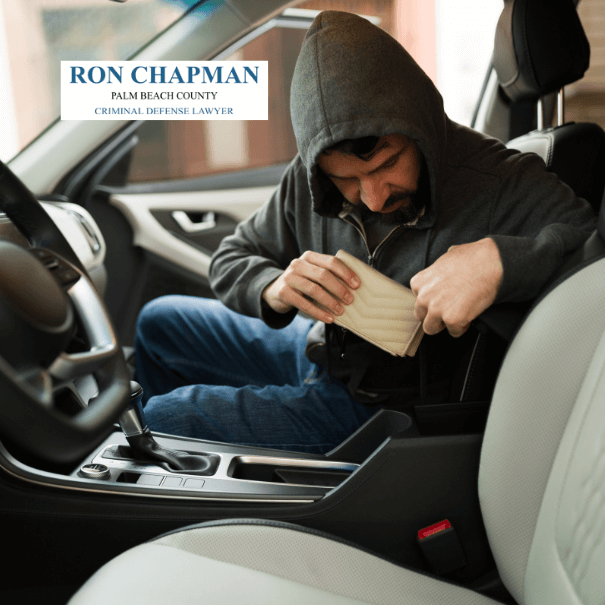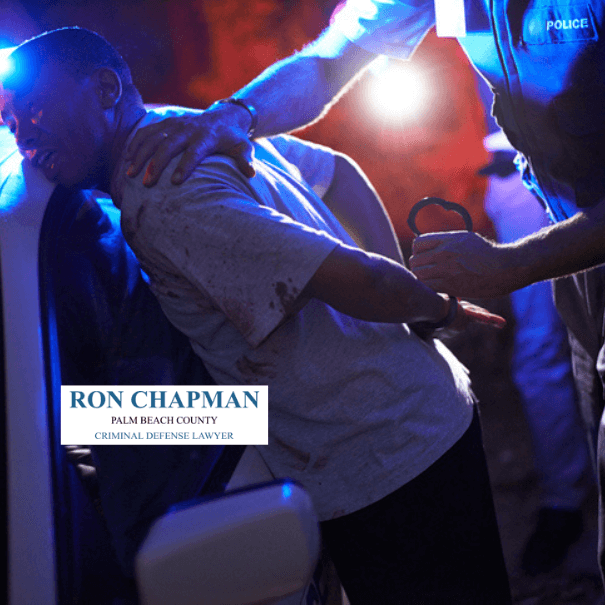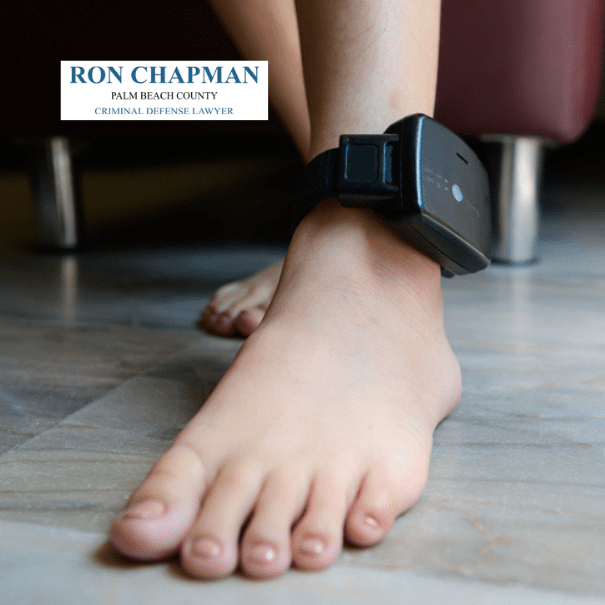The right to bear arms is in the United States Constitution. Florida allows permitless concealed carry of firearms after July 1, 2023, under certain conditions, but this does not match many people’s concept of the right to bear arms. If you face charges related to carrying a firearm in Florida, we understand the common confusion surrounding which behaviors are legal or illegal in what types of locations, by whom, or under what conditions is probably contributing to your anxiety and frustration as you seek to determine your next steps. As a seasoned concealed weapon defense attorney in Florida who has followed recent legal developments related to your gun rights, Ronald S. Chapman can guide you and strategize your defense plan.
Florida has required a concealed weapon or firearms license (CWL or CWFL, also known as a concealed carry permit) for concealed carry of a firearm before July of 2023. While Florida forbids openly carrying firearms, HB 543 makes permitless concealed carry of firearms and other weapons legal in Florida beginning on July 1st, 2023. Felons and others who are ineligible to carry firearms due to past domestic violence, drug or alcohol abuse, dishonorable discharge from the military, or mental health issues are still not allowed to carry, and there are many places where carrying a concealed firearm or weapon remains prohibited.
Carrying a concealed weapon without a permit in Florida before July 2023 would be a third-degree felony. You must understand many situations under which concealed carry in Florida remains illegal. If the prosecution charges you with illegally carrying a concealed weapon, you can expect them to fight vigorously to secure a conviction. You need to speak with a weapons charges criminal defense attorney immediately.
Ronald S. Chapman has over 34 years of experience defending clients facing weapons charges. As a sole practitioner, he takes the time to work directly with his clients and gather evidence to mount your defense. You do not want to face these charges alone with so much on the line. Contact our West Palm Beach concealed weapon defense lawyer today.
To carry a concealed weapon in Florida after July 1st, 2023, you still need to meet the conditions under which you would be eligible for a concealed carry permit. HB 543 essentially removes the requirement for a permit. However, people who do not meet the requirements to successfully apply for a permit still cannot carry a concealed weapon, and the behaviors that would have been illegal for someone with a permit — such as carrying a concealed weapon in prohibited places — remain illegal.
You must be 21 years of age to conceal carry in Florida, and you must also have a valid ID when you do so. Licensed gun sellers in Florida still must perform background checks when someone first purchases a firearm — HB 543 does not change this rule. You may still choose to pursue a CWFL, which requires helpful training and has the added benefits of reciprocity with some other states and the ability to take delivery of firearms on the same day as they are purchased. In contrast, nonlicensed individuals must wait for three days. You can gain added familiarity and peace of mind from having a permit to conceal carry, and you should specify to your attorney whether you have a concealed carry permit if you have been accused of or charged with a gun crime in Florida.
If you exercise your ability to legally carry a concealed weapon in Florida, wearing relatively loose clothes can help you hide the weapon's outline. A comfortable and appropriate holster also should not be visible to others. Taking these precautions can help you to avoid unnecessary criminal charges or uncomfortable situations for yourself and those around you.
In addition to making concealed carry of weapons legal for individuals in Florida that would qualify for a CWL or concealed carry permit, there are implications for employers, employees, businesses and individuals visiting those businesses. There are also implications for travel to and from various locations where concealed carry may or may not be restricted or prohibited.
With more people expected to regularly exercise their ability to carry a concealed weapon in Florida, this can lead to a greater potential for unintended or unexpected crimes involving illegal concealed carry or open carrying of a firearm. It is essential to know your rights, as the details of the circumstances leading to your alleged crime may contain critical factors to utilize when building your defense.
Starting July 1, 2023, employees who qualify for concealed carry are allowed under HB 543 to properly store their legal firearms in their car in an employer’s parking lot. Also, beginning in July 2023, employers are prohibited from:
- Conditioning employment according to whether a person is authorized to carry a concealed firearm
- Conditioning employment based on a person’s choice to lawfully store a firearm locked in or locked to their vehicle on that employer’s parking lot
- Preventing or disallowing employees, invitees or customers from entering their parking lot because their car contains a legal firearm for lawful purposes that is stored out of sight
- Discriminating against or discharging employees, or ejecting customers or invitees for legally keeping and bearing arms or exercising their right to self-defense — so long as that person never unlawfully exhibits a firearm for a reason other than lawful defense.
- Violating privacy rights of employees, customers, or invitees through verbal or written questions regarding whether a firearm is in their private vehicle in a parking lot — or by searching their private vehicle to determine whether a firearm is present.
- Taking action against an employee, customer, or invitee due to their statement(s) regarding the storage of a firearm in a private vehicle in a parking lot for lawful purposes
A firearm stored in the interior of a car in Florida should be kept securely encased and not readily accessible. A lawful firearm owner can lawfully carry a long gun anywhere within a private vehicle in Florida.
If your rights have been violated in any way during the events leading to allegations or charges indicating that you illegally carried a weapon or firearm, promptly communicate these details to your Florida concealed weapon attorney. The context of these circumstances may or may not contain factual evidence supporting an assertion that you did not act illegally. The sooner you act, the more your attorney may be able to do to limit the negative impact of charges or allegations.
These provisions also cover employers with employees. The prohibitions regarding employees’ stored firearms in vehicles do not apply if the vehicles are owned, leased, or rented by employers or their landlords. Furthermore, these rules do not apply if possession of firearms by these parties is prohibited by federal law, a contract with a federal government entity, or the laws of Florida. Likewise, these provisions may not apply if national defense, aerospace, or homeland security activities are performed on the property.
You can be charged with illegally carrying a concealed weapon even if you follow the concealed carry rules if in a location where concealed carry is restricted or prohibited. Law enforcement must prove you carried it into a prohibited place.
Such prohibited locations include:
- federal facilities
- police or sheriff stations
- highway patrol stations
- airport terminals
- polling places
- detention centers (jails or prisons)
- bars or establishments selling alcohol as a main priority
- schools (school buildings, facilities, or administrative buildings)
- college or university facilities
- any career center
- courthouses or courtrooms
- meeting places for governing bodies (county, public school district, municipality, or special district)
- meetings of Legislature or related committees
- any place of nuisance as defined by 823.05 (such as a place of illegal gambling or prostitution)
- any other location where carrying a firearm is prohibited under federal law
If found with a concealed weapon in a restricted site, you can be charged with a second-degree misdemeanor. Then the prosecution must prove that you willfully and knowingly carried your concealed firearm into the establishment. Contact our office today to speak with a West Palm Beach illegally carrying a concealed weapon lawyer and begin building your defense.
Open carry of a firearm in FL is a second-degree misdemeanor. For some illegal firearms, you would be facing a felony. It is crucial to distinguish between concealed carry and open carry while remaining up-to-date on Florida’s firearms laws, as there remain many ways you could be charged with a serious crime.
Various regulations are in place — meaning crimes remain on the books for concealed carry under certain conditions, and Florida is tough on those that fail to follow these laws. You need to understand where you can and cannot bring a weapon and when it must be out of sight. Mistakes can lead to misdemeanor or felony violations.
While openly carrying firearms remains prohibited in Florida, there are several exceptions to this rule:
- Hunting
- Fishing
- Camping
- Target practice at a gun range
- Carrying openly on your property (Guests may not openly carry on your property — even with permission)
Additionally, you may open carry the following, solely for lawful self-defense:
- Pepper spray or chemical spray
- Nonlethal taser, stun gun, or dart-firing stun gun
If you have had an incident involving these exceptions which has led to the allegation of a crime or a criminal charge, promptly discuss the details surrounding the incident with your attorney.
To be convicted of illegally carrying a concealed weapon in a location that is not a prohibited place in Florida, the prosecutor must prove that:
- You knew you had the weapon on or about your person.
- You concealed it from the view of others.
- You would not meet the qualifications to carry a concealed weapon in Florida.
If you are alleged to have carried a concealed weapon or firearm to a prohibited place in Florida, several exceptions and different factors may affect the specific circumstances. Discuss the details of the events surrounding the allegation with your attorney.
Your West Palm Beach concealed weapon defense lawyer will review the circumstances of the case, including the prosecutor’s evidence. Then your attorney will take steps to reduce, dismiss, or defend the charges.














